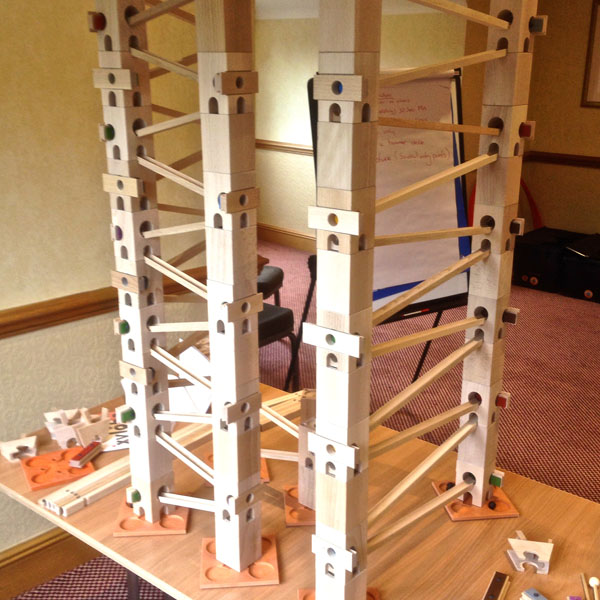Our planet's evolution works in strange and mysterious ways. We have seen throughout our planet's history, defining moments that change things for ever.
In terms of human evolution, we have seen historical periods of great advancement - notably with the great civilisations of China, Egypt, Greece and Rome, and periods of stagnation and regression, such as the period we often refer to as the Dark Ages.

Enter the Industrial Revolution. Never before had we seen an exodus from traditional village life, where farming dominated the working life, to the metropolis of city living and of gigantic workforces. Never before had so many people been required to work together as teams to achieve a common work goal.
It could be argued that the early industrial revolution resulted in little more than paid slavery, and we can credit it with the introduction of a new type of job role - that of the Manager. The role and function of the manager has changed and developed over the years and has inspired numerous books and studies over the years for team working and change management.

The job roles and people involved in management and leadership workshops are so varied that there is no 'one style fits all' for all approach to the subject. We still have, for example, Drivers, with their passion for results; Amiables, with their empathy towards others; and the Analytics who like to study information and analyse problems without being rushed. The question to ask at the moment is - Has another asteroid hit us? The latest phrases to arrive out of the current world-wide crises is 'New Capitalism' and Change Management. So, what does this mean and how has our Sub-prime asteroid affected our world today? There is a lot of speculation that the culture of greed, that has been instrumental in getting us into this current crisis, will be swept away, with a move towards more empathetic and conscientious styles of team working 'kinder, gentler, less divisive, less of a casino in which the winner takes all' The BBC's Robert Peston, 8th December 2008. It is fair to say that this will possibly provide a basis for capitalism for the short term, but is it realistic for this attitude to prevail for the foreseeable future?
Whichever way it plays out, there is no doubt that for now, greed is not necessarily king. We can change our behaviour and our attitude - if we want to! The first step in making these changes is to understand the changes in ourselves. We can help facilitate this in a number of ways by using behaviour analysis tools. These tools not only point out our strengths, but also identify any weaknesses that we want to control.

What is clear is that we can't do nothing! Times are changing and we need to change with them. Change management can help with this in the following ways: - Understand the core company and team culture. - Identify barriers to change. - Design team building workshops on self-awareness and market expectations. - Deliver team building workshops that will instigate long-term change that will impact positively on your bottom line. - Follow up to ensure long lasting changes.
